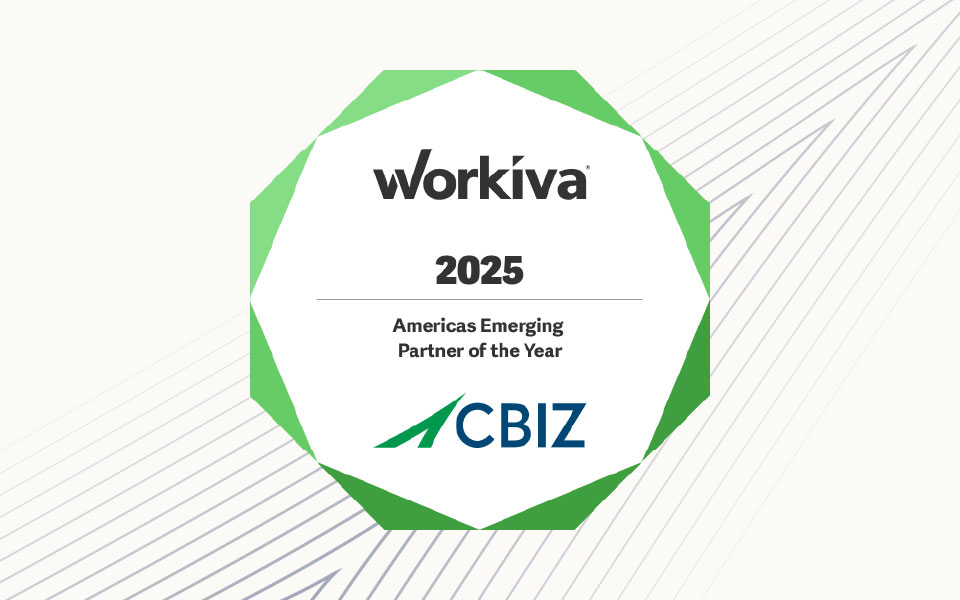How your not-for-profit handles compensation sends a clear message about your values and leadership. It reflects your commitment to stewardship, builds donor confidence, and shapes how the public views your organization. Today, expectations around transparency and accountability are rising, especially when it comes to executive pay.
Many not-for-profits face the challenge of offering fair compensation while staying fiscally responsible. It’s not just about what you pay, but how you make those decisions. Strong compensation governance helps protect your mission, attract the right leaders, and ensure your practices hold up under public and regulatory scrutiny.
Explore how a compensation committee works, when it’s needed, and what alternatives may be right for your organization.
Why Compensation Governance Matters
In the not-for-profit sector, how compensation decisions are made can be just as important as what is paid. Stakeholders, from donors to regulators, expect transparency and accountability. Strong compensation governance provides a clear framework for setting pay, aligning it with your mission, and documenting decisions to reduce regulatory and reputational risks. It also helps ensure that compensation practices are fair, defensible, and focused on long-term organizational sustainability.
The Role of a Compensation Committee
A compensation committee is a board subcommittee that helps guide fair and responsible pay decisions, especially for senior leaders. Its work ensures that compensation aligns with performance, reflects organizational values, and complies with legal requirements.
Key responsibilities often include:
- Aligning executive pay with performance
- Reviewing the organization’s approach to pay across roles
- Managing incentive plans and benefits strategies
- Ensuring compliance with IRS regulations and public disclosures
While many committees focus on senior roles, some also provide input on broader workforce compensation practices to support fairness and consistency across the organization.
Why Your Not-for-Profit Might Need a Compensation Committee?
A dedicated compensation committee strengthens governance and accountability by introducing independent, objective oversight, particularly for executive pay decisions. It builds public trust through transparent processes, third-party benchmarking, and consistent documentation, making it easier to justify compensation choices to donors, regulators, and the public.
In competitive labor markets, strategic pay practices help attract and retain the mission-driven talent your organization needs to thrive. A formal committee also helps ensure compliance with IRS regulations, including rebuttable presumption procedures that reduce the risk of penalties for excessive compensation.
Lastly, it improves board efficiency by delegating compensation oversight to a focused group, freeing the full board to concentrate on broader governance responsibilities.
When a Compensation Committee May Not Be Necessary
A formal compensation committee isn’t always required. In smaller not-for-profits with modest executive pay and simple structures, the board may choose to oversee compensation directly. This can work well when the organization has a small team, low public visibility, and documented pay policies.
Even without a committee, it’s important to follow best practices. Use reliable market data, document decisions, and keep records that show transparency and fairness. These steps help maintain donor trust and reduce compliance risks, no matter what your structure.
Is a Compensation Committee the Right Fit?
Before deciding whether to create a compensation committee, take time to assess your organization’s size, structure, and strategic needs. If several of the following apply, a formal committee may help strengthen your governance and reduce risk:
- Board Capacity: Does your board have the time and expertise to take on compensation oversight?
- Leadership Structure: Do you have multiple senior roles or complex pay arrangements that require specialized review?
- Regulatory Exposure: Is your organization large or high-profile enough to attract scrutiny from regulators or watchdogs?
- Public Perception: Has executive pay ever raised questions from donors or the public?
- Talent Pressures: Are you competing for top talent or facing retention challenges that demand a more strategic pay approach?
How to Build an Effective Compensation Committee
A strong compensation committee doesn’t just follow procedure; it brings structure, independence, and clarity to pay decisions that reflect your organization’s mission and values. The most effective committees share a few common traits:
Structure and Membership
- Consists of three to five board members who are independent from management
- May engage outside advisors or consultants for objectivity
Core Responsibilities
- Approve executive compensation packages and annual pay adjustments
- Review and recommend the organization’s compensation philosophy and salary equity
- Keep thorough documentation of discussions, benchmarking data, and final decisions
Best Practices
- Utilize the third-party market to ensure fair and competitive pay
- Adhere to IRS rebuttable presumption guidelines to reduce legal risk
- Tie compensation decisions to performance and long-term strategic goals
Flexible Approaches to Strengthen Compensation Oversight
Not every organization has the capacity to support a standing compensation committee. Still, it’s important to ensure strong oversight and transparent pay practices. If a formal committee isn’t the right fit, consider these options to uphold governance standards:
- Delegate oversight to your existing governance or finance committees
- Use a temporary task force to review executive pay on a scheduled basis
- Engage an outside advisor to validate compensation decisions and provide benchmarking data
- Document your compensation approach clearly, including salary policies and decision-making criteria
- Create internal protocols to promote consistency and fairness, even without a dedicated committee
These alternatives can offer flexibility while helping your organization stay transparent, compliant, and mission focused.
Mission First, Market Aware
Compensation decisions say a lot about your not-for-profit’s values, leadership, and commitment to responsible stewardship. Whether through a formal committee or a thoughtful alternative, strong oversight helps you balance market expectations with your mission, build trust with stakeholders, and reduce compliance risks.
As your organization grows or draws more public attention, formalizing your compensation practices is a proactive way to protect your people and purpose.
Need Help Evaluating Your Approach?
Contact a member of our team to discuss the best oversight structure for your organization’s size, needs, and goals. Explore our compensation consulting services to see how we can support your organization.
© Copyright CBIZ, Inc. All rights reserved. Use of the material contained herein without the express written consent of the firms is prohibited by law. This publication is distributed with the understanding that CBIZ is not rendering legal, accounting or other professional advice. The reader is advised to contact a tax professional prior to taking any action based upon this information. CBIZ assumes no liability whatsoever in connection with the use of this information and assumes no obligation to inform the reader of any changes in tax laws or other factors that could affect the information contained herein. Material contained in this publication is informational and promotional in nature and not intended to be specific financial, tax or consulting advice. Readers are advised to seek professional consultation regarding circumstances affecting their organization.
“CBIZ” is the brand name under which CBIZ CPAs P.C. and CBIZ, Inc. and its subsidiaries, including CBIZ Advisors, LLC, provide professional services. CBIZ CPAs P.C. and CBIZ, Inc. (and its subsidiaries) practice as an alternative practice structure in accordance with the AICPA Code of Professional Conduct and applicable law, regulations, and professional standards. CBIZ CPAs P.C. is a licensed independent CPA firm that provides attest services to its clients. CBIZ, Inc. and its subsidiary entities provide tax, advisory, and consulting services to their clients. CBIZ, Inc. and its subsidiary entities are not licensed CPA firms and, therefore, cannot provide attest services.















